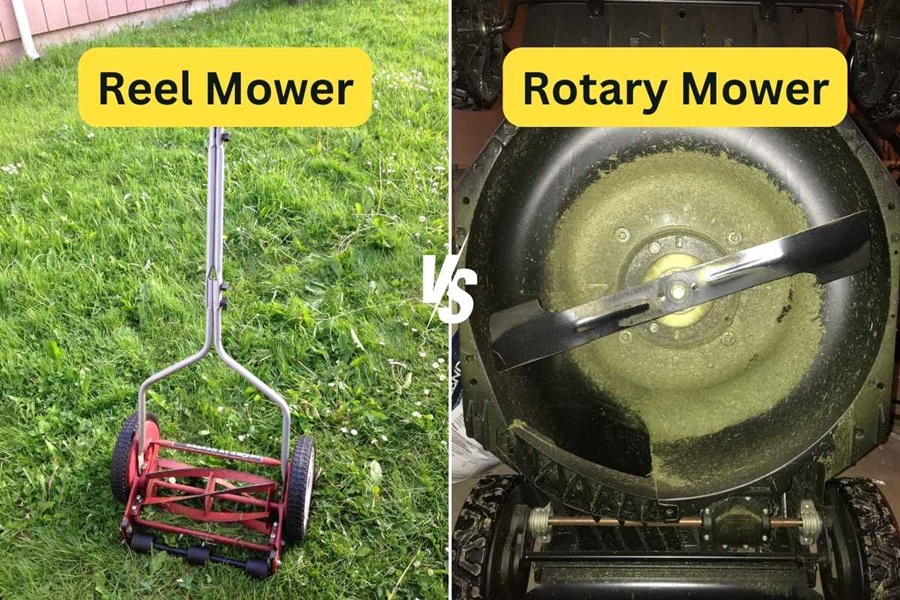When it comes to maintaining a pristine, healthy lawn, the choice between a reel mower and a rotary mower can significantly affect the outcome. Each mower type has its own unique mechanism, advantages, and limitations. In this in-depth comparison, we explore how reel mowers differ from rotary mowers, and which one might be the superior choice for your lawn care routine.
Understanding the Cutting Mechanism
How Reel Mowers Work
Reel mowers, also known as cylinder mowers, utilize a series of helical blades arranged around a cylinder. These blades spin vertically, like scissors, against a stationary bed knife, creating a clean and precise cut.
- Scissor-like action reduces lawn stress
- Blades rotate vertically, minimizing grass tearing
- Ideal for short grass types and frequent mowing
This cutting method is favored by professionals who maintain golf courses and ornamental lawns, where precision is crucial.
How Rotary Mowers Work
In contrast, rotary mowers feature a single horizontal blade that spins at high speeds, chopping the grass on impact. This method is more aggressive and less precise.
- Blade rotates horizontally at high speed
- Cuts grass by impact rather than slicing
- Suitable for longer grass and uneven terrains
The high-speed spinning blade can sometimes tear the grass instead of cutting it, which may lead to browning and disease susceptibility in certain turf types.
Cut Quality and Lawn Health
Superior Cut of Reel Mowers
Reel mowers deliver a cleaner, more uniform cut. This method preserves the grass’s health by reducing trauma to the leaf blade, leading to:
- Healthier turf with fewer diseases
- Cleaner appearance
- Enhanced recovery and resilience
This makes reel mowers especially effective for fine grasses such as Bentgrass, Bermuda, and Zoysia.
Rotary Mowers and Grass Tearing
Rotary mowers, although efficient for quick mowing jobs, are known to rip rather than slice grass blades. This results in:
- Frayed edges that turn brown
- Increased water loss
- Higher risk of pests and fungal infections
While rotary mowers can be adjusted to cut lower, they do not offer the same level of precision, especially on delicate or closely cut lawns.
Ease of Use and Maintenance
Reel Mower Simplicity
Reel mowers are manual or motor-assisted, with minimal mechanical components, making them:
- Low maintenance (no fuel, minimal lubrication)
- Lightweight and easy to maneuver
- Environmentally friendly (no emissions)
However, reel mowers require frequent sharpening to maintain optimal performance. They also perform best on even lawns and may struggle with twigs or thick weeds.
Rotary Mower Convenience
Rotary mowers, especially gas or battery-powered models, offer greater convenience for large or uneven lawns:
- Can handle tougher terrain and tall grass
- Available with self-propulsion and bagging options
- Higher maintenance due to engines, oil, filters, and spark plugs
While rotary mowers offer more power, they are heavier, louder, and emit pollutants, which may not suit every user.
Cost Comparison and Longevity
Initial and Ongoing Costs
- Reel mowers tend to have a lower upfront cost and almost no ongoing expenses aside from occasional blade sharpening.
- Rotary mowers, while available in budget models, usually incur higher costs due to fuel, oil, replacement parts, and servicing.
Durability and Life Expectancy
A well-maintained reel mower can last decades due to its simple construction. In contrast, rotary mowers have more moving parts that are prone to wear, especially engines and belts.
Best Use Cases
Reel Mowers Are Ideal For:
- Small to medium-sized lawns
- Homeowners who mow frequently (every 3–5 days)
- Lawns with even terrain and no large debris
- Grass species that thrive with low cutting heights
Rotary Mowers Are Better For:
- Larger or uneven lawns
- Infrequent mowing schedules
- Areas with weeds, sticks, and thick grass
- Homeowners prioritizing speed over precision
Environmental Impact
Reel Mowers – The Eco-Friendly Choice
Since most reel mowers are manual or electric, they:
- Produce zero emissions
- Operate quietly with minimal noise pollution
- Consume no fuel or oil
This makes reel mowers an excellent choice for sustainable lawn care practices.
Rotary Mowers – Carbon Footprint Considerations
Gas-powered rotary mowers contribute to:
- Air and noise pollution
- Fuel consumption
- Higher carbon emissions
Although electric rotary models are cleaner, they still rely on electricity, which may be less green depending on the source.
Safety and Noise Levels
Reel Mower Safety
Reel mowers are inherently safer due to the manual cutting action. There’s no high-speed blade, and:
- Children and pets face lower risk around them
- No flying debris or rocks being hurled
Rotary Mower Hazards
Rotary mowers pose more risk due to:
- High-speed spinning blade
- Potential for projectiles
- Higher decibel levels that require ear protection
Storage and Space Requirements
Compact Reel Mowers
Reel mowers are generally:
- Smaller and lighter
- Easy to store in sheds or garages
- Require no special handling
Bulky Rotary Mowers
Rotary mowers, particularly gas-powered versions, require:
- More storage space
- Fuel-safe environments
- Regular cleaning to avoid buildup of grass clippings and oil residue
Conclusion
Choosing between a reel mower and a rotary mower depends entirely on your lawn type, mowing habits, and personal priorities. For those who value precision, eco-friendliness, and healthier turf, the reel mower is the clear winner. On the other hand, if you need to tackle larger, tougher lawns with minimal effort, a rotary mower offers more convenience and power.








Leave a Reply